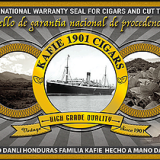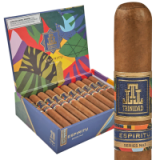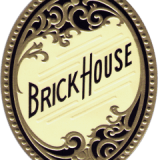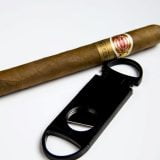Cigars are a luxurious item that many people enjoy, and for some, cigars also make an excellent investment. Whether you’re looking to purchase cigars as a hobby or an investment strategy, there are a few things you should consider before making your purchase.
Contents:
First of all, it is important to note that the flavor of the cigar plays an essential role in its value. Different varieties can range from mild and smooth to robust and full-bodied; each providing its own unique taste experience. You should research various flavors beforehand so that you know which type best suits your palate and will bring you enjoyment while smoking them. It is helpful to seek out reviews on different brands as this could help inform your decision when choosing cigars as an investment.
In addition to flavor, age can be another factor that impacts the quality of a cigar and ultimately its value. Cigars made with aged tobaccos tend to have smoother tastes than those made with younger leaves since aging helps enhance the tobacco’s aroma and sweetness over time. Vintage cigars often fetch higher prices due to their rarity; however they may not necessarily taste better than more recently produced ones depending on how well they were stored throughout their lifetime.
When purchasing premium cigars for investing purposes, it is important take into account the size of each stick as well – larger ring gauges usually cost more than smaller sizes due to their increased production costs but provide a longer smoke time per cigar. The construction quality also matters too; hand-rolled cigars offer superior consistency compared to machine-made versions since human hands are capable of ensuring precision rolling every time whereas machines tend create slightly different shapes each time they produce one stick after another.
Where you buy your cigars from makes a difference too – buying directly from manufacturers gives buyers access to fresher products at lower prices because no middlemen are involved in the transaction process unlike when purchasing through retailers or wholesalers who generally add markups onto their stock for additional profit margins beyond what was initially paid by the manufacturer for production expenses.
Investment Strategies
When investing in cigars, the approach taken should be much different than other types of investments. As opposed to focusing solely on price, investors must look at a cigar’s pedigree and condition when making an informed decision. Understanding the source of the cigar is crucial as it can affect its quality and value over time. Knowing who rolled or created the cigar and what type of tobacco was used can help determine its worthiness as an investment.
Looking for signs of damage is essential before purchasing any cigars as damaged items have lower values due to their reduced lifespan. Checking for cracks or discoloration on the wrapper will help assess whether a particular item has been adequately cared for prior to purchase. Ensuring that the humidor storing these products is properly calibrated is key since too little humidity can dry out a cigar while too much moisture can lead to mold growth and ruin it entirely.
Recognizing rarer brands with limited production runs may present an opportunity to acquire valuable items that appreciate quickly in price over time. Doing research into current market prices and auction records will provide insight into which cigars are likely going up in value soonest so that investors know where best to put their money when it comes time to invest in cigars.
Assessing Quality
When it comes to investing in cigars, careful assessment of the quality is paramount. After all, cigar investment has long been a popular option for those looking to make an informed purchase that can potentially offer both financial and emotional rewards. For this reason, inspecting each cigar with a critical eye is essential.
The primary factor in assessing quality is the wrapper; it should be smooth and consistent with no blemishes or discoloration. When unrolling the cigar, take note of its construction as well; unevenness can indicate poor manufacturing processes which could affect the overall experience when smoking. The draw should also be tested for consistency by gently pulling on one end of the cigar until smoke is emitted from the other end without too much effort or resistance. This will ensure an even burn and provide a better smoking experience.
Aroma plays an important role in gauging quality as well; a strong and pleasant scent indicates good aging processes have taken place while a dull or sour smell could mean that there are issues present which may need further investigation before making any purchases. All these aspects should be considered prior to investing in cigars so that you can get maximum enjoyment from your purchase down the line.
Identifying Profitable Brands
When it comes to cigars, the price tag isn’t always an indicator of quality. Instead, there are certain brands that have proven time and again to be more profitable investments than others. While all cigar aficionados will have their own personal preferences in terms of flavor and aroma, some companies consistently produce smokes with greater returns on investment than others.
One such brand is Montecristo. This name has been synonymous with high-end cigars since its founding in 1935 by Alonso Menendez and Pepe Garcia who were inspired by Alexandre Dumas’ novel “The Count of Monte Cristo”. As a result, their handmade Cuban-style smokes have become increasingly popular over the years as collectors search for authentic specimens from this legendary maker. Because of the limited production capacity and high demand for these premium stogies, they can often fetch a hefty price at auction or resale shops – making them especially desirable for those looking to make sound financial decisions when investing in tobacco products.
Another well-regarded label is Romeo y Julieta which was founded in 1875 in Cuba by Inocencio Alvarez and Manin Garcia after Shakespeare’s play by the same name. To this day they remain one of the most sought after manufacturers on the market due to their unique blends which feature carefully selected tobaccos from Nicaragua, Honduras and Mexico among other countries. The craftsmanship behind each smoke also makes them ideal investments as many consider them true works of art rather than simply another cigar off the shelf.
Comparing Cigar Prices
When it comes to cigars, there are many different prices available on the market. It is important to compare prices between brands and retailers before investing in a cigar. Knowing what you’re paying for can help you get the most out of your investment.
In order to make an informed decision about purchasing a cigar as an investment, one must understand how much they should pay for each type of cigar. Many factors such as region of origin, size and shape of the tobacco leaves used, age of the leaves and other quality considerations will all influence price points. For instance, Cuban cigars typically command higher prices than those from Nicaragua or Honduras due to their reputation for excellence in taste and quality control standards; whereas Honduran cigars may be more affordable but still offer great flavor profiles at lower cost.
Another factor when comparing cigar prices is availability – some popular brands may have limited stock that drive up demand-related pricing while others may be plentiful at more competitive rates. Researching online forums or speaking with knowledgeable aficionados can provide insight into current pricing trends across various regions and types of cigars so investors can make wise decisions when looking to invest in premium smoke experiences without breaking their budget.
Researching Market Trends
Cigars can be a unique and enjoyable investment. It requires careful consideration when selecting cigars to ensure they will hold their value or increase over time. One way to ensure that is by researching market trends.
In order to get an idea of the current cigar climate, it is important to look at recent sales data from auctions, retail shops, and other venues. This can provide insight into which brands are in demand and what styles of cigars have been selling for higher prices than usual. Reviewing catalogs from companies such as Cigar Aficionado or Cigar Insider can give valuable information about certain manufacturers’ latest releases and how well they have performed in the past few years.
Reading up on reviews from cigar aficionados can also help determine which products are worth investing in. Experienced smokers typically offer detailed opinions regarding flavors, burn quality, construction, and other factors that may influence how well a particular cigar holds its value down the line. By taking all these things into account before purchasing any cigars as investments, one can make sure they are making an informed decision with a high chance of success.
Exploring Different Varieties
Exploring different varieties of cigars is an essential part of selecting a cigar as an investment. Every variety offers unique qualities, and understanding the nuances between each one can help you make a more informed decision when investing in cigars.
The Cuban variety has long been considered the gold standard for premium cigars, but other countries like Nicaragua are increasingly becoming renowned for their cigar production. Nicaraguan tobacco is generally darker and earthier than its Cuban counterpart, which makes it ideal for blending with milder tobaccos to create complex flavor profiles that appeal to both connoisseurs and novice smokers alike.
Dominican Republic-grown tobacco tends to be lighter and sweeter than other varieties, making it suitable for creating mellow blends that still provide plenty of flavor. Many Dominican Republic-based companies produce some of the world’s most popular flavored cigars, such as those made with vanilla or rum flavoring. For investors looking to add flavorful products to their portfolio without sacrificing quality, Dominican Republic-made cigars offer a great option.
Understanding Tax Implications
Cigars can be an exciting and luxurious investment, but it is important to understand the potential tax implications before investing. While cigars are a popular choice for collectors, many states have taxes on tobacco products, which may need to be taken into account when considering the return on your investment. Federal taxes may also apply in some circumstances.
It is important to research the local laws where you live as well as any other places where you intend to purchase or sell cigars. If you plan to resell them, you should familiarize yourself with excise tax regulations and other applicable rules that could affect your profits from selling cigars. If you are buying or selling large quantities of cigars it might also be beneficial to consult a professional tax advisor who can help determine any additional liabilities that may arise due to sales and transfers of ownership of cigar collections.
If you plan on storing your cigars for long-term investments then it is wise to ensure they will remain in good condition until they are sold or gifted away by keeping them at optimal temperatures and humidity levels so their value doesn’t decrease over time. Taking these precautions will help ensure that your cigar investment remains profitable while also ensuring compliance with applicable taxation laws.
Securing Storage Solutions
When it comes to cigars as an investment, having the right storage solutions is essential. Cigars require a unique set of environmental conditions in order to maintain their quality and value. Proper humidity levels, temperatures, and ventilation are all key factors that should be taken into account when deciding on how to store your collection.
The most popular option for cigar storage is a humidor – an airtight box designed specifically for storing cigars. Humidors come in various sizes and materials such as wood or metal, and each has its own benefits. Wooden humidors provide natural insulation which helps regulate temperature better than metal ones; however they can also be more expensive. It’s important to choose the size of your humidor based on the amount of cigars you plan on storing at any given time – too large or too small can result in damage to your precious investments.
Humidity control systems are also available for those looking for more precise regulation over their collection’s environment. These systems range from basic units with adjustable hygrometers up to advanced digital devices that monitor multiple variables like temperature, relative humidity, airflow rate and CO2 level – all within one unit. Whichever solution you decide upon, making sure that your cigars are stored properly will ensure they remain in pristine condition over time while preserving their monetary value down the line.











